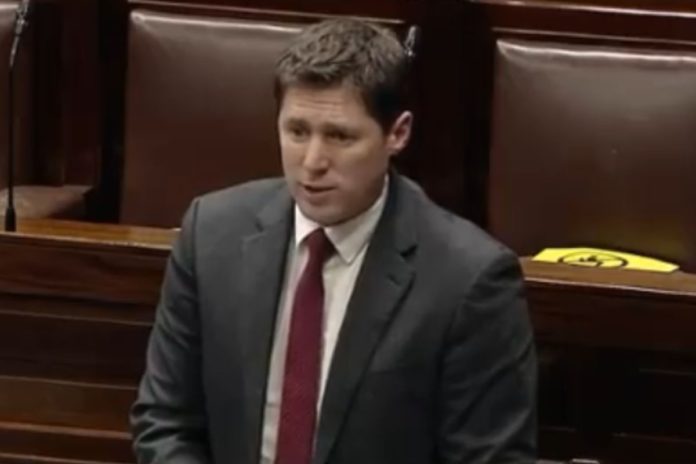The need for a climate action bill is real, but so too is the need for the government to recognise the real concerns and realities of ordinary workers, families, and rural communities. That is the view of Sinn Féin’s Cavan-Monaghan-based TD, Matt Carthy, who spoke during a Dáil debate earlier this week.
He believes the real problem is “the lack of any ambition or vision for rural communities within the government as a whole”.
The TD outlined that he has reached out to constituents in rural communities to ask them “what climate change means to them and has meant to them”.
“They tell me it means higher taxes, higher costs on products for which they have no alternatives, job losses and greater fear for their livelihoods, particularly in farming families. The climate crisis is real,” he told the Dáil.
“The biggest problem I have is the confidence that any of the parties in government can address those concerns and realise the difficulties of the realities I have outlined.”
‘Simply exporting problems’
He accused the Green Party, in particular, of adopting a policy of “simply exporting whatever it perceives to be problems”.
Referring to the approach to horticultural peat as an example, he said, “the Green Party has driven an agenda, that has been by and large facilitated by its government partners, of banning the cultivation of horticultural peat”.
He stressed this is a “key component in vital sectors” of rural communities, such as the mushroom industry.
“When asked, they tell us those sectors need to find alternatives. When you engage with them, as I did with the Minister, Deputy Eamon Ryan, in this chamber, and ask what the alternatives are, the alternative is importing peat from outside of the state. That is not climate action.”
Beef farming
“That is hypocrisy. If we take the same approach to beef, for example, as we do to peat, that is hypocrisy that will devastate rural communities for no benefit for the environment whatsoever.”
“If we were to suggest, as we apparently are, that we reduce the number of suckler farmers and suckler beef cows being produced along the west, the Border region or the midlands, and on the other hand agree, as the government has done, to a Mercosur trade deal that will see the importation of 100,000 tonnes of additional Brazilian beef to the European market, that is not climate action. That is hypocrisy.”
He called on state bodies and government agencies to take responsibility and added that “people want and are asking for fairness”.
Dairy farming
On the other hand, he said he has spoken to several dairy farmers who have expanded in recent years.
“Many young farmers were told dairy was the sector for them. They were told by ministers, state agencies and financial institutions they needed to go into or expand in dairy, and yet this week, there are being told there is a limit to the amount of milk that they will produce.”
“Nobody is suggesting there will be less milk consumed. The only question left unanswered is where that milk will be produced.”
“If our only suggestion, is we reduce food production in Ireland and we import from countries of more intensive production such as those in South America, that is not climate action. That is hypocrisy.”
The TD called on the government to rural-proof the policies to ensure the response to climate action “we all agree needs to happen does not disproportionately impact those who have suffered as a result of virtually all other government policies”.
“If we are to be serious about climate action, let us get serious about those who are primarily responsible for the climate crisis. That is, the big corporations – those who will find it easiest to transition to alternatives.”
“Those who cannot transition to alternatives in the short-term without government support, that is, ordinary workers, ordinary families and the rural communities of the country, need to be facilitated,” Matt Carthy concluded.





